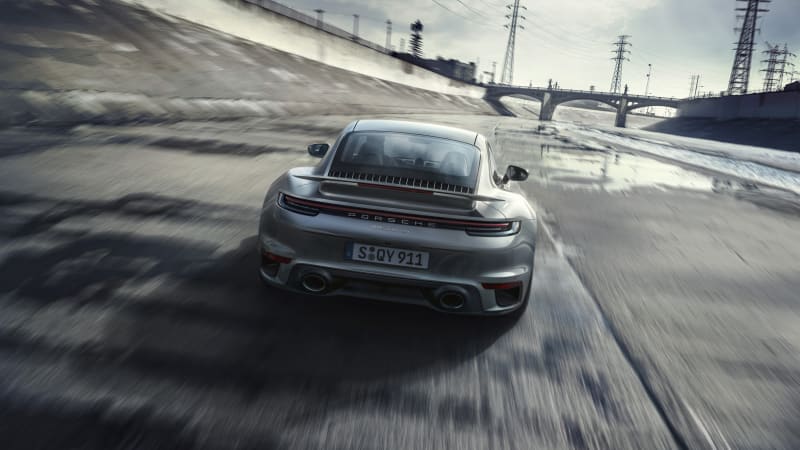
2020 is off to a rough start for the entire automotive industry, but Porsche ended 2019 on an extremely positive note. It notably increased its global sales by 10% to 280,800 units. The company told Autoblog it plans to continue growing in the coming years, and it doesn’t expect it will need to cap sales to maintain exclusivity.
“Volume is a consequence of a good product strategy. At the end of 2019, we expected to grow again in 2020, though this has been affected by the [coronavirus] crisis. We’ll see over the next few weeks what we will have at the end of the year. But, what’s more important for us is profitability, and at the end to have emotional and convincing products. Then, you have the results on the volume side,” explained company CEO Oliver Blume.
The new products Porsche plans to bring to the market in the coming years will help it expand. They include a taller, wagon-like evolution of the Taycan previewed in 2018 by the Mission E Cross Turismo concept, and the second-generation Macan which will be offered exclusively with an electric powertrain. The current-generation SUV — Porsche’s best-seller — will carry on with gasoline-burning engines for as long as there is a demand for it.
We’ll likely see new variants of the latest 911 (pictured), as the range is far from complete, but Blume ruled out following sister companies Bentley, Bugatti, and Lamborghini into the burgeoning coachbuilding industry.
“I think for Porsche, with the success of limited-edition models like the 911 Speedster, which was limited to 1,948 units, it might be an example. We have a lot of ideas for the future, but I don’t think we will go into very small numbers like few-offs,” the executive affirmed.
Porsche has already sold over 15,000 examples of the aforementioned Taycan, its first mass-produced electric model, and it will continue developing electrification technology in the coming years. It announced it will invest €10 billion (about $11 billion) in the hybridization, electrification, and digitalization of its cars by 2024. If all goes according to plan, hybrid and electric models will represent half of its annual global sales by 2025.
Related Video:
